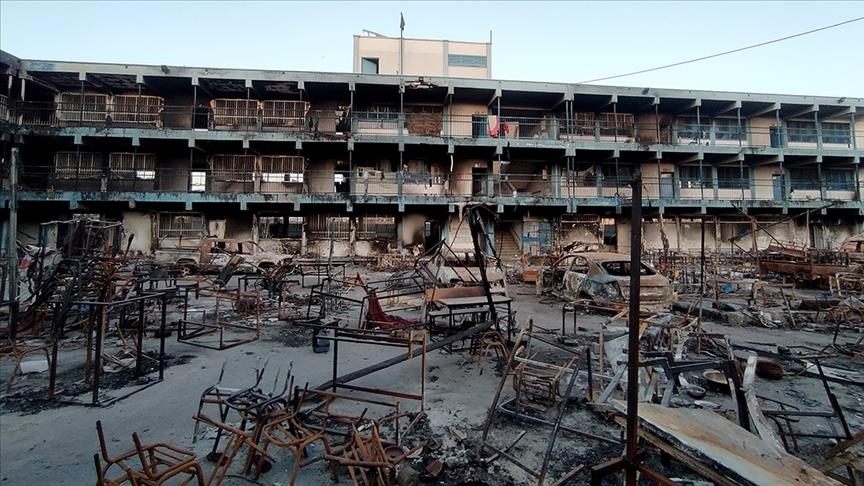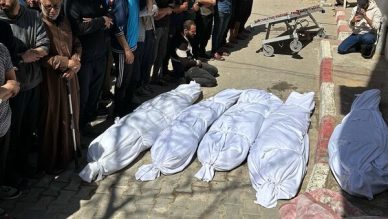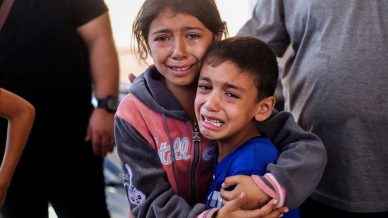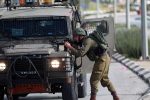GAZA, (PIC)
Umm Hisham, in the time before the war on Gaza, was deeply invested in her children’s education. She enrolled them in private schools, hoping they would receive a higher-quality education than what was offered in government schools or those run by the United Nations Relief and Works Agency for Palestine Refugees (UNRWA), all in the hope of securing them a bright and distinguished academic future.
At the beginning of the 2023–2024 academic year, Umm Hisham was preparing for her third child, Khaled, to start school and enter the first grade. But just one month into the school year, the war on Gaza erupted, shattering the future of her children and casting them into uncertainty.
More than a year and a half later, Umm Hisham finds her son Khaled—who has not received any form of education—on the verge of what would have been his entry into the third grade under normal circumstances. Yet, he remains nearly illiterate, unable to read or write.
Khaled’s case mirrors that of thousands of children who found themselves in the midst of a war waged on Gaza—a war that wiped out education, schools, and showed no mercy in killing both students and teachers. Schools, universities, and specialized learning centers were destroyed, all in blatant disregard of international laws and treaties.
This reality, often overlooked in the media due to the ongoing bloodshed and relentless campaign of extermination, reveals another kind of war waged in Gaza: a war on knowledge. This “Educide” is just one among many others launched by the Israeli occupation, including wars of starvation, dehydration, shortage of medical supplies and equipment—and, of course, direct killing.
An educated people
It’s as if, in its campaign of extermination, the Israeli occupation aims to erase the truth: that Palestine had one of the world’s lowest illiteracy rates (2.1% among individuals aged 15 and over) in 2023. In contrast, the illiteracy rate among individuals aged 15 and over in Western Asia and North Africa stood at 19% in 2022, according to UNESCO data—24.6% among females versus 13.7% among males.
Globally, in that same year, the illiteracy rate among individuals aged 15 and over was 13%, with 16.2% among females and 9.7% among males.
Data shows a significant drop in illiteracy among Palestinians since 1997. The illiteracy rate among Palestinians aged 15 and over fell from 13.9% in 1997 to 2.1% in 2023. This decline occurred across genders: among males, the rate dropped from 7.8% in 1997 to 1.1% in 2023, and among females, from 20.3% to 3.2% during the same period.
Geographically, the rate fell in the West Bank from 14.1% in 1997 to 3.2% in 2023, and in the Gaza Strip from 13.7% to 1.9%.
The eradication of education
In its all-encompassing war targeting every essential sector of Palestinian society in Gaza, the occupation launched an assault aimed at erasing Palestinians’ educational gains and pushing them decades backward.
In early March, Gaza’s Ministry of Education and Higher Education revealed the martyrdom of 12,467 students, with 20,311 others injured, along with the martyrdom of 569 educational staff members and injuries to 2,703 others.
The Ministry stated that 111 schools were completely destroyed, 241 others severely damaged, 85 partially damaged, and 89 UNRWA schools vandalized. In addition, 51 university buildings were totally destroyed, and 57 partially damaged.
Repeatedly, the Government Media Office in Gaza has announced that the ongoing Israeli war has deprived 800,000 students of all educational levels in Gaza of their right to education, after being cut off from school since October 7, 2023.
In January, the United Nations Relief and Works Agency (UNRWA) reported that 88% of schools in Gaza had been damaged by the war, depriving approximately 660,000 children of the opportunity to learn.
Attempts and challenges
Education service providers in Gaza, particularly for children—including the government and UNRWA—have been trying to establish educational alternatives to reduce the harm caused by prolonged absence from formal learning environments. These include limited in-person instruction and remote learning.
However, remote learning via the internet faces enormous challenges, primarily the lack of access to electricity, internet, and mobile devices. On top of that is the psychological toll of war, which creates a complex and unstable emotional environment for children and their families.
Sam Rose, Director of UNRWA Operations in Gaza, stated during a temporary ceasefire (which the occupation later ended by resuming war), that it is essential to provide hope and a future for the children and their families. He emphasized that children must be able to continue their education, warning that an entire generation is at risk. “Education,” he stressed, “cannot be negotiable.”













